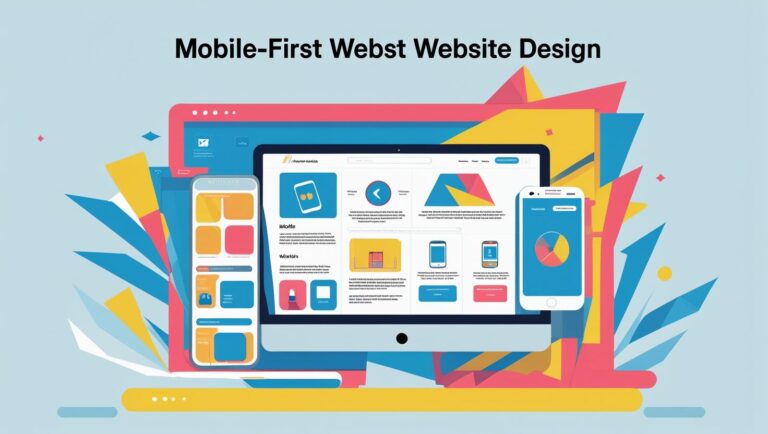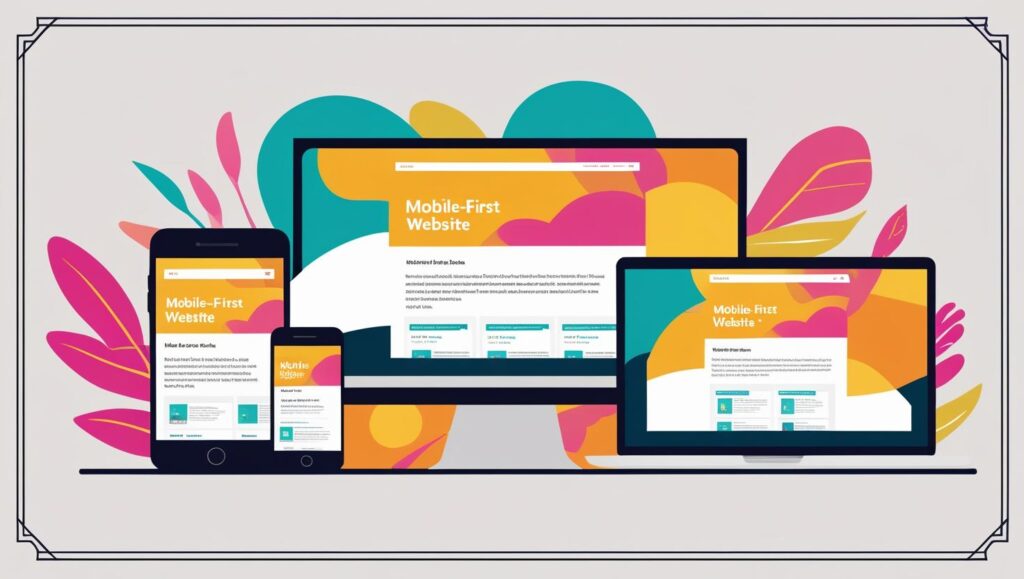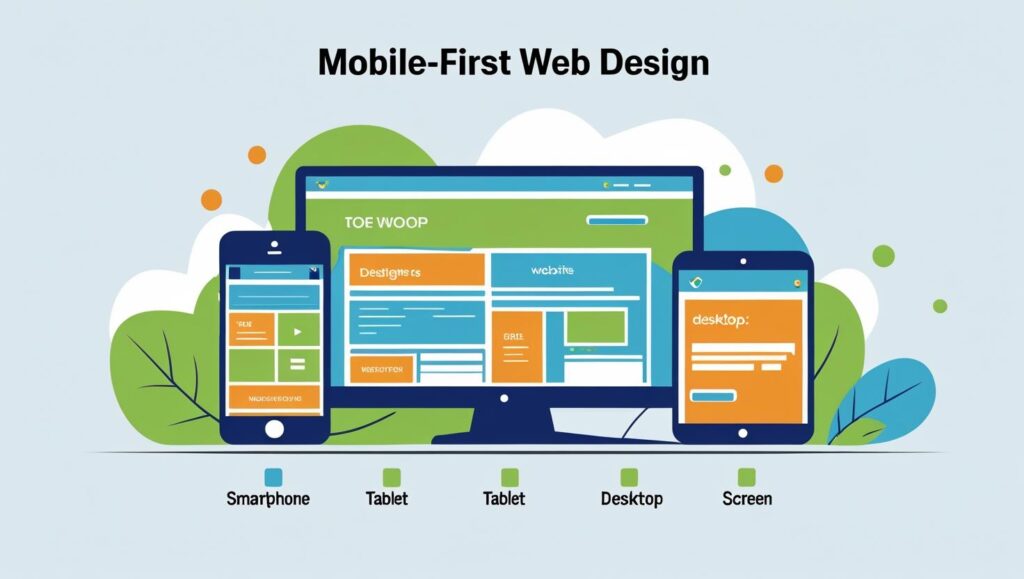
 Why Mobile First Design Is Essential
Why Mobile First Design Is Essential
 Introduction
Introduction
In the fast-paced digital world of today, one thing is crystal clear: mobile phones are everywhere. Almost every individual—regardless of age or profession—carries a smartphone in their pocket. These devices are not just for making calls or sending texts; they’re our daily source of entertainment, learning, shopping, and information.
Just pause and reflect—how many times have you opened a website today on your phone? Whether it’s searching for a nearby restaurant, reading a news article, or browsing YouTube, it’s your mobile you reach for first. That’s why Mobile First Design is not just a web development trend—it’s a foundational necessity for websites in 2025 and beyond.
Let’s explore in depth why a mobile-first strategy is essential and how using tools like Astra Theme and Elementor can help you build high-performing mobile-optimized websites.
 Mobile Usage: The Current Landscape
Mobile Usage: The Current Landscape
According to recent reports and data from Google Analytics and Statista, over 80% of web traffic now comes from mobile devices. The shift is drastic:
2010: Desktop usage was over 90%
2020: Mobile overtook desktop
2025: Mobile accounts for 80%+ of user visits on most websites
Mobile isn’t just a trend—it’s now the primary way people interact with the internet.
This shift has major implications for businesses and website owners. If your website is not optimized for mobile, you’re potentially ignoring the majority of your users—and Google is taking notice.
 What Is Mobile First Design ?
What Is Mobile First Design ?
Mobile First Design means designing your website with the smallest screen in mind first, and then gradually enhancing it for larger screens like tablets and desktops. This is the reverse of traditional web design, where developers would first create the desktop version and then adapt it for mobile.
 Key Characteristics of Mobile First Design:
Key Characteristics of Mobile First Design:
Prioritizes content visibility on small screens
Loads quickly on slower mobile networks
Simple and intuitive navigation
Thumb-friendly buttons and forms
Flexible layout that adapts to all screen sizes

 Why Mobile First Design Matters More Than Ever
Why Mobile First Design Matters More Than Ever
1. User Experience (UX) is Everything
A user landing on your site from Google on a smartphone expects it to load quickly and look clean. If your site appears cluttered, takes too long to load, or requires pinching to zoom, they’ll bounce away in seconds.

2. Google’s Mobile-First Indexing
Since 2019, Google has implemented Mobile First Indexing, which means it predominantly uses the mobile version of your site for indexing and ranking.

3. Better Conversions and Engagement
Mobile users aren’t just browsing—they’re buying, signing up, and engaging.
60%+ of e-commerce transactions now happen via mobile.
Sites optimized for mobile see higher click-through rates, better form submissions, and more conversions.
 Tools I Use: Astra Theme + Elementor
Tools I Use: Astra Theme + Elementor
To ensure my websites are fully mobile-optimized, I rely on two proven tools: Astra Theme and Elementor Page Builder.
 Astra Theme
Astra Theme
Astrais a lightweight, SEO-friendly WordPress theme built for performance.
Key Benefits:
Super-fast loading speed
Built-in responsive design
Customization options for different devices
Compatible with all major page builders
 Elementor Page Builder
Elementor Page Builder
Elementoris a drag-and-drop visual page builder that gives full control over the design without touching a line of code.
Why I Love Elementor:
Separate design controls for mobile, tablet, and desktop
Real-time mobile previews
Easily adjust font size, spacing, and padding for mobile screens
Mobile-friendly widgets and elements
By combining Astra + Elementor, I can create websites that not only look stunning on mobile but also perform well in SEO and user interaction.

 Best Practices for Mobile First Design
Best Practices for Mobile First Design
Here are some essential tips I follow (and recommend) when designing websites for mobile users:
 1. Simplify the Layout
1. Simplify the Layout
Mobile screens are small—keep your design clean and minimal. Use collapsible menus, shorter paragraphs, and clear CTAs.
 2. Optimize Speed
2. Optimize Speed
Use compressed images, minimal plugins, and CDN services. Fast loading is crucial for both UX and SEO.
 3. Use Responsive Typography
3. Use Responsive Typography
Text should adjust in size and spacing to remain readable on any screen size.
 4. Optimize Images and Videos
4. Optimize Images and Videos
Ensure media is responsive and doesn’t overflow the screen or affect load times.
 5. Test on Real Devices
5. Test on Real Devices
Emulators help, but always test your site on actual smartphones to catch real-world issues.
 Real-World Example
Real-World Example
Let’s say you own a local bakery and most of your customers discover you through Google search on their mobile phones. If your website:
Takes 6 seconds to load
Has hard-to-click buttons
Shows text too small to read…
Then even your best offer won’t matter—they’ll move on to the next bakery listing.
Now imagine a mobile-optimized website:
Loads in under 2 seconds
Has clearly visible product images
Easy-to-tap buttons for “Order Now”
That’s the power of mobile first design—it turns traffic into customers.
 Impact on SEO and Google Rankings
Impact on SEO and Google Rankings
Google’s algorithm prioritizes mobile usability, and websites with poor mobile experiences often suffer from:
Lower SERP rankings
Higher bounce rates
Lower average time-on-site
 Here’s what Google checks:
Here’s what Google checks:
Is text readable without zooming?
Are elements spaced well for tapping?
Does the page load quickly on 4G/3G?
Are the layout and media responsive?
When you pass Google’s Mobile Usability test and score well in PageSpeed Insights, you boost your SEO significantly.
 Responsive Mobile First Design vs. Responsive Design
Responsive Mobile First Design vs. Responsive Design
While both aim to support multiple screen sizes, here’s the difference:
| Feature | Mobile-First Design | Responsive Design |
|---|---|---|
| Priority | Designs for mobile first, then enhances for desktop | Designs for desktop first, then adapts to mobile |
| Performance | Better speed and performance on mobile | Often heavier, less optimized for mobile |
| UX Focus | Prioritizes mobile behavior | Desktop behavior remains the base |
So while responsive design is good, mobile-first is smarter in today’s mobile-dominant world.
 Final Thoughts
Final Thoughts
If your website isn’t mobile-friendly in 2025, you’re not just missing out—you’re falling behind. Users demand fast, clean, and responsive designs that look amazing on any screen, especially smartphones. Google expects the same.
By embracing a Mobile First Design approach using powerful tools like Astra Theme and Elementor Page Builder, you future-proof your website for performance, conversions, and SEO success.
In simple words: Design for the thumb, and the rest will follow.
 Frequently Asked Questions (FAQs)
Frequently Asked Questions (FAQs)
Q1: Is mobile-first design only for e-commerce websites?
No. Every website—from blogs and portfolios to local business sites—benefits from mobile-first design. It improves usability, engagement, and SEO for all niches.
Q2: How do I test if my website is mobile-friendly?
You can use:
Google Mobile-Friendly Test (free)
Browser Dev Tools (Responsive Mode)
Real device testing across different brands/sizes
Q3: Does Elementor support mobile editing?
Yes, Elementor offers mobile editing mode where you can adjust styles, fonts, margins, paddings, and layouts for mobile, tablet, and desktop separately.
Q4: Can I convert my existing WordPress site to mobile-first?
Absolutely. With themes like Astra and page builders like Elementor, you can redesign your current site without starting from scratch.
Q5: Will a mobile-first design slow down my site?
No. In fact, when done correctly, it often improves your site speed because mobile-first sites are lighter, more efficient, and optimized for mobile performance.
 Ready to Go Mobile-First?
Ready to Go Mobile-First?
If you’re looking to create a website that performs flawlessly on mobile, don’t just settle for “responsive.” Aim for mobile-first. Use smart design strategies and trusted tools like Astra + Elementor, and you’ll create experiences your visitors—and Google—will love.
Recent Posts
Ayush Singhal is the founder and chief editor of TechMitra.in — a tech hub dedicated to simplifying gadgets, AI tools, and smart innovations for everyday users. With over 15 years of business experience, a Bachelor of Computer Applications (BCA) degree, and 5 years of hands-on experience running an electronics retail shop, Ayush brings real-world gadget knowledge and a genuine passion for emerging technology.
At TechMitra, he covers everything from AI breakthroughs and gadget reviews to app guides, mobile tips, and digital how-tos. His goal is simple — to make tech easy, useful, and enjoyable for everyone. When he’s not testing the latest devices or exploring AI trends, Ayush spends his time crafting tutorials that help readers make smarter digital choices.
📍 Based in Lucknow, India
💡 Focus Areas: Tech News • AI Tools • Gadgets • Digital How-Tos
📧 Email: contact@techmitra.in
🔗 Full Bio: https://techmitra.in/about-us/

 Why Mobile First Design Is Essential
Why Mobile First Design Is Essential Introduction
Introduction Mobile Usage: The Current Landscape
Mobile Usage: The Current Landscape What Is Mobile First Design ?
What Is Mobile First Design ? Key Characteristics of Mobile First Design:
Key Characteristics of Mobile First Design: Why Mobile First Design Matters More Than Ever
Why Mobile First Design Matters More Than Ever Tools I Use: Astra Theme + Elementor
Tools I Use: Astra Theme + Elementor Astra Theme
Astra Theme Best Practices for Mobile First Design
Best Practices for Mobile First Design Impact on SEO and Google Rankings
Impact on SEO and Google Rankings Responsive Mobile First Design vs. Responsive Design
Responsive Mobile First Design vs. Responsive Design Final Thoughts
Final Thoughts
 Frequently Asked Questions (FAQs)
Frequently Asked Questions (FAQs) Ready to Go Mobile-First?
Ready to Go Mobile-First?
thanks for sharing good information